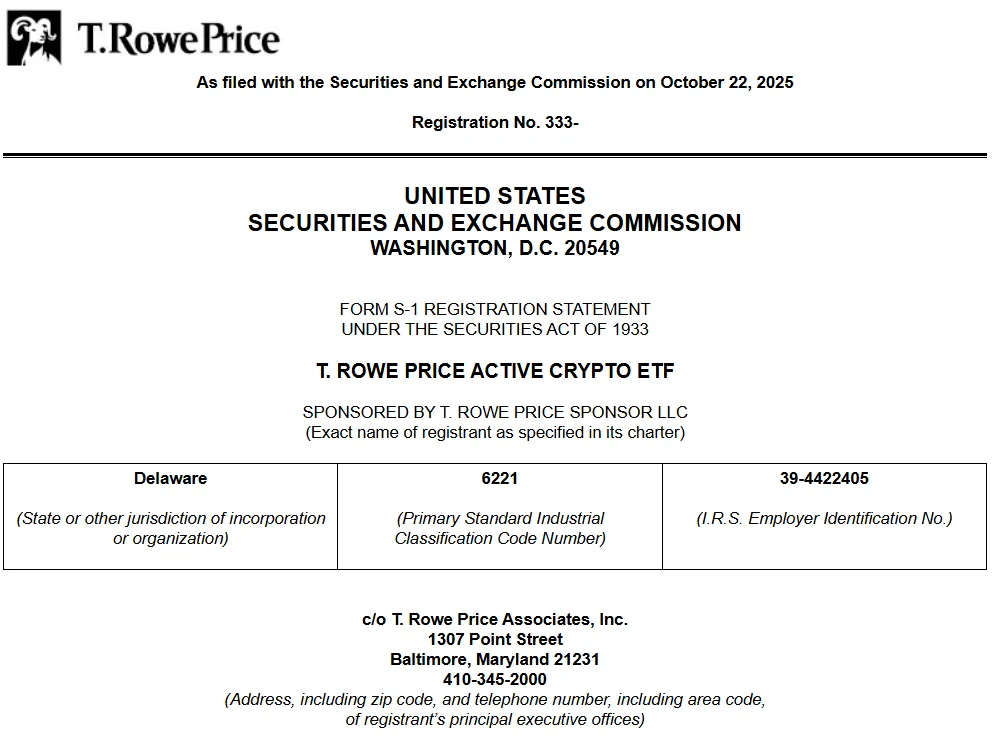T. RowePrice, a traditional investment firm with approximately $1.77 trillion in asset management, has filed paperwork with the SEC for its first cryptocurrency-focused exchange-traded fund (ETF).
T. Rowe, which manages $1.7 trillion, has made a move for crypto
According to the filing, the firm has filed an S-1 registration statement with the U.S. Securities and Exchange Commission (SEC) under the name "TROW Active Crypto ETF." This fund is notable for its actively managed structure; instead of passively tracking a specific index, the management team will be able to make selections based on market conditions.

The filing includes the following: The fund will invest in eligible crypto assets; the number of these assets will normally be between 5 and 15, but this number can be increased or decreased as needed. Potential assets include Bitcoin, Ethereum, Solana, XRP, Cardano, Avalanche, Dogecoin, Shiba Inu, Litecoin, and Polkadot. Management has also stated that this fund aims to exceed the FTSECryptoUSListedIndex index annually.
This is significant for the company. The move into crypto by an institution founded in 1937 and specialized in mutual funds for many years is considered a milestone. Analyst Nate Geraci described this move as a "surprise from outside the field," as traditional asset managers were still perceived as cautious on the crypto side.
This development indicates a shift in the balance of power in the asset management world. Traditional investment giants are now seeking ways to become a part of the crypto market rather than shying away from it. As analyst Nate Geraci put it, "Waiting for crypto to disappear is not a strategy."
However, the application's approval process faces a hurdle. Due to the US government shutdown, the Securities and Exchange Commission has limited resources, delaying the processing of new crypto ETF applications. In this case, the process is expected to reopen to allow T. Rowe Price's application to be processed quickly. To summarize, this application represents a significant opportunity for both the institution and its investors. It's a critical step for the institution in diversifying its asset management portfolio. For investors, as with most crypto ETFs, it offers the potential to access crypto through a regulated institution. However, there are some important points to consider: the volatility of crypto assets can be much higher than traditional assets, and active management strategies may not always be successful. Once the application is approved, details such as fee levels, portfolio structure, and risk management should be presented to investors.




